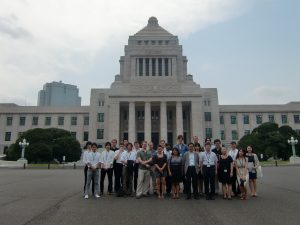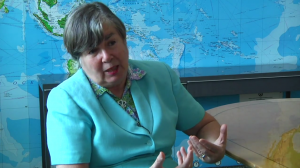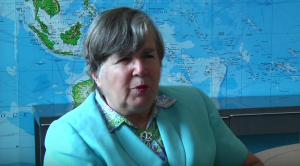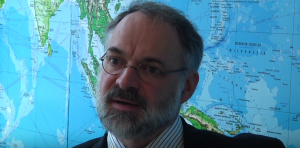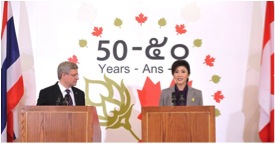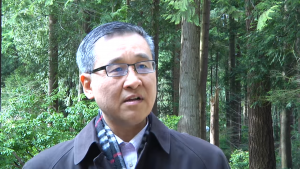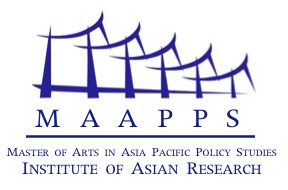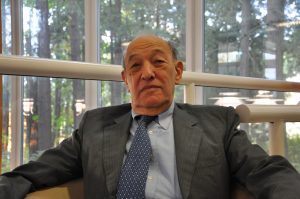Upcoming Canada-Japan Economic Partnership Agreement – Lessons Learned from Korea
Memo #192 – Canada and Japan are set to begin negotiations to develop an Economic Partnership Agreement (EPA) on November 26th, 2012. Canada hasn’t completed a preferential trade agreement with any of its Asia Pacific partners, and Japan has yet to finalize an EPA with a G8 country. As negotiations for a Free Trade Agreement (FTA) with Korea have entered their seventh year and as regional competitors, like Australia, are forging new trade partnerships in Asia, Canada feels pressured to assert itself in the region. If Canada can learn from the stalled Korean negotiations, the Canada-Japan EPA can become the platform to accomplish such a task.
Canada-China Education Projects (Video Interview with Dr. Ruth Hayhoe) (Part 2/2)
Memo #162 – In part two of our interview Dr. Hayhoe provides insight on how the next generation can learn from previous Canada-China education projects. She discusses what Canadians can gain from the Confucian tradition of education, analyzes Hong Kong’s education system in response to influences from mainland China, and shares her goals for the project.
Canada-China Education Projects (Video Interview with Dr. Ruth Hayhoe) (Part 1/2)
Memo #159 (Video) – In this interview, based on a lecture at The University of British Columbia in May 2012, Dr. Hayhoe reflects on the arc of previous Canada-China education projects, Canada’s legacy, and mutual learning and lessons for each state partner
China – Global Shipping, Coal Usage, High Speed Train Corridors (Video Interview with Dr. Claude Comtois)
Memo #155 – China is a driving force in global shipping, coal usage, and high speed train corridors. Based on a series of lectures at The University of British Columbia in February 2012, Dr. Claude Comtois argues, that in combination these three developments have enormous implications for China and the world.
Exporting “Tough on Crime” Policy to Thailand: Harper’s Recent Visit
Memo #148 – Human smuggling and terrorism – not trade – played centre stage in Prime Minister Stephen Harper’s visit to Thailand in March. Although the Thai government was eager to solicit more interest in trade during a visit that marked the 50th anniversary of Canada-Thailand relations, it was left with $7 million (CDN) for an anti-crime program and an “exploratory” talk on free trade.
Alzheimer’s Disease Research in China and Canada (Video Interview with Dr. Weihong Song)
Memo #147 – Alzheimer’s disease affects ten per cent of people over 65 years old, and 50 per cent of people over 85. Both China and Canada are experiencing a rapidly aging population. In China, there are 178 million people over 60.
China: Energy, Environment, and Growth – Options for Canada (Video Interview with Dr. Wenran Jiang)
Memo 140 – China’s environmental issues need to be understood in a global rather than a narrowly national context. While China as a nation is the largest emitter of carbon dioxide on a per capita basis Chinese citizens produce far fewer emissions than citizens in advanced industrial economies. Further a large proportion of these emissions result from export industries producing goods for export abroad.
Asia Pacific Policy Studies (Special Edition)
Memo #124 – Our Master of Arts Asia Pacific Policy Studies (MAAPPS) is a boutique program offering training focused on the Asia Pacific to prepare graduates for professional careers in policy-analysis and policy-making. MAAPPS gives you the opportunity to focus on topics ranging from international relations and Asia’s place in the world, to human security and human rights, governance, international development and more. MAAPPS is an innovative and flexible program that can be tailored to suit you and your goals.
Interview with Ezra Vogel on Deng Xiaoping’s Role in International Relations (Part 3/3)
Memo #123 – In this final instalment of our interview with Ezra Vogel, he turns first to the legacy of Deng Xiaoping. While Deng’s role in the suppression of popular protest at Tiananmen Square in 1989 will never be forgotten, the longer view will dwell on Deng as the man who changed China and steered the transformation that formed the China we see today. Professor Vogel then turns to Deng’s role in international relations, beginning with the predominant relationship with the US but also noting Canada’s special role in the 1970s and enduring relationship. Finally, Professor Vogel reflects on how he came to write this biography, and much of his public work, in a style that combines scholarship and accessibility.
100 Years after the Xinhai Revolution
Memo #108 (Theme: 100 Years after the Xinhai Revolution) Today, on October 10, 2011, the world is commemorating the centennial of the Xinhai Revolution, which ended the Qing Dynasty and founded a republican China. In a series of Memos we examined the impact that the revolution and its aftermath have had on China and its […]
